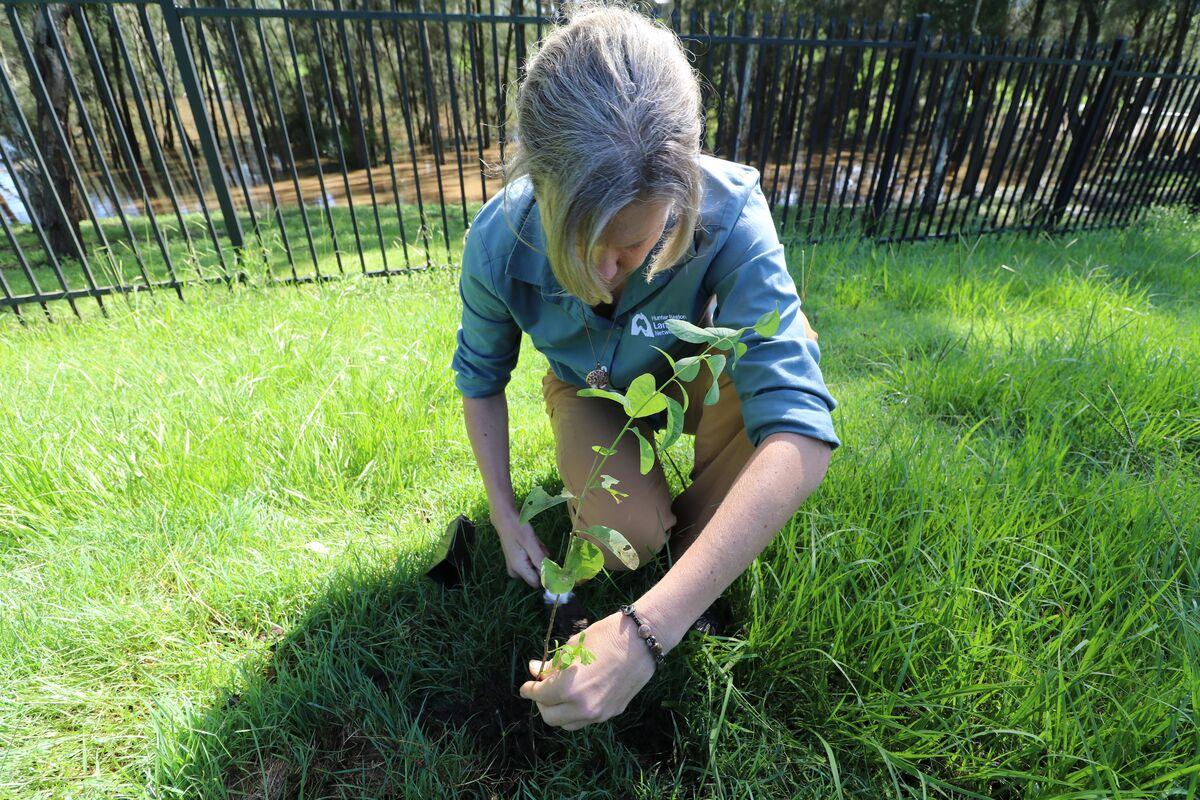Community involvement
Community involvement is crucial for a sustainable environment. Participating in Council-led initiatives such as tree planting and local biodiversity projects helps protect and enhance natural spaces. Healthy ecosystems improve air quality, cool urban areas, and increase property values, while providing recreational opportunities and wildlife habitats. Access to these green spaces boosts physical and mental well-being, underscoring the importance of community engagement in environmental stewardship.
Strategic targets we are meeting
Creating community engagement
This is helping us achieve Goal 1.4 of our Green & Blue Maitland target.
Protect important natural spaces
This is helping us achieve Goal 1.2 of our Green & Blue Maitland target.
Increases canopy cover in residential areas
This is helping us achieve Goal 2.3 of our Livable & resilient communities target.
Subscribe to our newsletters
Green communities & Environmental Educators
Stay connected with our Green Communities and Environmental Educator newsletters to get the latest updates on sustainable living, seedling giveaway, planting events and environmental education.
View previous Green community newsletters and Environmental Educators newsletters.
Landcare
Maitland City Council works closely with Hunter Region Landcare Network (HRLN) to connect the the community, protect local green spaces and promote positive ecological outcomes.
Landcare groups meet regularly to maintain and improve natural areas by engaging in activities such as bush regeneration, weed control, planting and revegetation, flora and fauna monitoring, erosion control, as well as training and education.
Get involved
Landcare offers more than just tree planting and weed control. By joining, you’ll have the opportunity to enjoy outdoor activities with like-minded people, enhance your health and wellbeing benefits and form new friendships. Volunteering also allows you to contribute to the restoration of local ecosystems and support habitats for native wildlife.
Resources for teachers
School Environment Program
Our Environment team are able to help with environmental education in preschool, primary school and high school curriculums through presentations and resource kits.
Schools in Maitland are also eligible to register a teacher as their key contact to receive updates on environmental workshops, events and grants.
Downloadable kits
These kits cover topics such as water conservation, the benefits of cycling, local heritage, and water resource management. Kits are available for loan and include engaging activities and information.
We have also developed a number of teaching resources for Walka Reserve which can be applied under history, science and geography.
Our environmental education kits include:
Interactive learning support
Tips for living sustainably
Energy saving tips
You can save energy by following a few simple tips:
- Turn off lights and appliances when not in use
- Open curtains for natural light and warmth during the day
- Switch appliances off at the wall and avoid standby energy use
- Run dishwashers and washing machines only with full loads
- Choose appliances with high energy star rating to save money in the future
- Set your air conditioner at 24°C in summer and 19°C in winter to reduce running costs
To assist in monitoring household energy usage, Council also has energy power meters available for loan from any library branch.
For additional hints and tips, view our brochure on saving energy, or use the NSW Government's Energy Switch Comparison Tool, to compare gas and electricity plans for NSW households.
Solar power
The Australian Government’s Solar Consumer Guide provides useful information to assist residents looking to install rooftop solar and batteries.
The guide also links to the SunSPOT solar and battery calculator which assists residents in sizing and choosing the location for future rooftop solar systems and will assist in calculating future energy savings.
Water saving tips
Each person in the Hunter uses around 205 litres of water per day. You can save water by following a few simple tips:
- When purchasing water using appliances such as dishwashers and washing machines, choose one with a high water efficiency star rating to save you water in the future.
- Repair leaking taps as soon as they are identified as dripping taps can waste between 30 to 200 litres of water per day.
- Install water efficient tapware/shower head or retrofit with aerators or flow control valves.
For additional hints and tips, view our brochure on saving water.

